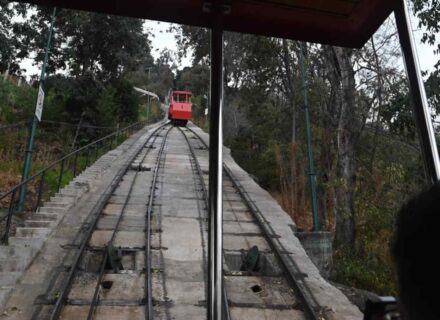Planning to travel solo for the first time can make for mixed emotions. It can be exhilarating and daunting all at once. But travelling alone doesn’t have to be a lonely experience. In fact, it helps build your confidence and forge friendships that really can last a lifetime. So whether you’re joining a group tour, or planning your own independent trip, here are our top 11 tips for your first solo adventure abroad.
Get organised
The first step to feeling confident and in control is to set an itinerary. Start by reading a few guide books, travel blogs and adventure travel sites (even ours!) and figure out which places and events you really don’t want to miss in the time you have. But don’t try and pack too much in. You’ll want to build free time into the day for seeing an extra room in the museum, or exploring that random market you stumbled across, or even having a coffee with a new friend. Your first trip doesn’t have to take in a whole continent either. Try a couple of weeks somewhere interesting to test your mettle. Just make sure you give yourself enough a little bit of wriggle room at the beginning and end of your trip so you can stay longer in places you like, and to account for unforeseen delays.
Pack light
Unless you’re planning on using your luggage as a replacement for Crossfit classes, you’ll want to make sure you can lift your bags up and down stairs by yourself. Let’s face it, hotel elevators are notoriously on the blink when you need them most! Whether you’re planning on dressing for comfort or style, try not to leave packing till the last minute. You’ll need enough time to edit your wardrobe down to the essentials, to fit just one large suitcase or backpack and a rucksack for your carry on. Look up the typical temperature and rain charts for your destination for your travel dates – it’ll help cut down on unnecessary gear. Definitely pack at least one amazingly comfy pair of walking shoes with good grippy soles.
Aim to arrive during the day
Make it easy for yourself and book your flight with a daylight arrival time. There’s nothing worse than being alone in a new city, exhausted from the flight with only half a clue where you are and how to get to the hotel. (It’s also an idea to book an airport transfer, look for an official city taxi, or research your public transport options in advance).
Open up and make new friends
When we choose to travel solo, we’re deliberately shedding our safety net of friends and family, and diving into new relationships. It’s an exciting part of the adventure, but it can also be a bit nerve wracking. Solo travel gives you the chance to be a new person to new people, and this in itself can be really freeing and rewarding. So, why not take out the ear plugs, put down the phone and start a conversation with someone? Whether you’re in the hotel lobby, at the bar, on the plane, train or bus, or even paddling down rapids on the Nile in Uganda, you’re bound to find someone to swap war stories with, share a 2-4-1 cocktail with, or at least help you find a clean toilet! Sometimes a nice chat simply starts by asking someone to take a picture of you. Be brave!
Try something crazy and new
A great benefit of travelling solo is you don’t have to compromise on the activities you want to do. No-one can stop you taking a random cooking class, getting up at dawn for a balloon trip over the Great Migration, trekking to that remote Mayan ruin, or … (insert amazing thing you’re dying to do here). You’re free to test your limits and enjoy the adventure to the full without someone else’s hang ups or opinions holding you back. Go for it!
ake care of yourself
Staying safe and healthy while you travel seems like a no-brainer, right? Of course you’re going to get your travel jabs and insurance, scan and email your travel documents to yourself, get some back up cash and an extra debit or credit card, whatever prescription meds you need and your basic pain relief – that’s all obvious stuff. You’re not daft enough to walk down dark alleyways alone, and your mum’s probably been on at you about sharing itineraries and keeping in touch.
So, here are a few things that may not have crossed your mind:
Read up on local customs, laws and taboos, so you can put your best foot forward in social situations. You don’t want to be offending your local hosts by wearing the wrong clothes, using the wrong hand gestures… you get the idea. It’s also a good idea to understand local tipping culture and whether small gifts (or bribes) are expected (or legal) in addition to payment for certain services.
In some countries it’s best practice to specify no ice in your drinks, and avoid salads and raw veggies. The ice cubes could be made from contaminated water and the salad could be washed in it too. The locals’ tummies will tolerate the bugs, but yours might be upset by the intrusion.
Take your own reusable water purifier bottle to save on cost and plastic, and stay hydrated. Even bottled water can be local tap with a nice sticker on it (shock horror!)
Travelling around the city alone? Tell the hotel where you’re off to and who you’re going with if you’ve booked a trip, tour or private cab tour. Otherwise, public transport is a great option for safety in numbers and fixed timetables.
Strangely enough, fanny packs are hugely back in vogue as a festival fashion accessory. Could come in pretty handy for carrying the frequently needed papers, bug spray, cash etc.
A Swiss Army Knife can also be very handy – part self-defence, part beer opener, part sandwich-maker, just don’t pack it in your carry-on bag!
Travel tech is your friend
You’re going to want to use free Wi-Fi wherever you can. But, it’s a good idea to check before you travel exactly what you’ll be charged for data roaming on your smartphone or tablet. You might find it’s a good time to switch contracts if your tariff seems a bit steep, or consider a roaming add-on if switching’s not an option.
It’s highly recommended to learn some basic phrases in the local language before you travel. The usual hello, please, thank you, where is the (toilet, shop, hotel), and can you help me, are all super useful and help create goodwill along the way. If you don’t get around to it though, download Google Translate. It’s free, and it allows you to scan and translate everything from street signs and restaurant menus into your language. It does need Wi-Fi or 3G to work properly though.
Other apps which are pretty much must-haves are XE Currency (for exchange rates) and Google Maps or City Mapper (for navigation).
Don’t forget your back-up battery! You’ll definitely need the extra power when the maps and camera drain your phone half way through the day. Plus, a universal wall adapter too!
Also, don’t forget to turn on your GPS/Find My Friends/Find My Phone location trackers in your phone. If it gets lost, or you do, you’ll be able to get someone to help you find yourself (or it).
Snacking and dining solo
There’s a lot of fun to be had eating alone. From decoding the menu and choosing exactly what you like (knowing you don’t have to share!), to trying something bizarre and new (and not having to negotiate!).
If you’ve got specific dietary requirements, it’s a good idea to research what the local cuisine is like before you travel. If you have particular allergens or foods you need to avoid, learn what they’re called and how they’re spelled in the local language. You could even take a print out listing things you can’t eat to show the waiting staff or shopkeeper. Don’t forget, Google Translate can help you translate menus and ingredients on packaged snacks as well.
To keep occupied during quiet meals, you could keep a notebook full of detailed observations of the day. It’ll be fun to look back in a few years at how you felt about certain things you ate, experiences you had, and specific things that made you laugh or cry or rage at the world. Or, you could simply dive into a paperback, something that’s been on your list for a while… something you can exchange with another traveller at a hotel or hostel once you’re done.
We love all things food and travel. Keep an eye on our blog for the latest food recommendations when you are travelling solo including our post on the food and drinks in Peru .
Take lots of photos – and don’t forget video too!
You don’t need to be one of those obnoxious tourists with a selfie stick, but there’s no reason why you shouldn’t take a pic with the grumpy camel that just delivered you safely to the yurt. Uploading a funny selfie on social media is also a great way to keep friends and family up to date.
Try to be patient and go with the flow
Chances are, you’re from a country where things tend to run quite efficiently and predictably. But we can’t expect that to be the case wherever we go. Sometimes the buses are late, or we get confused about directions and waste an extra hour getting somewhere. We can come across rude or unfriendly staff and there can be a general lack of certainty that can be frustrating. You’ll make friends in some places, and not others; be busy and excited some days, a bit lonely the next. Try to let it all wash over you and let go of those little things. They’re all just little things.
Take a group tour
If want to make the most of limited time, and hate booking hotels and transport, a group tour will take almost all the hassle out of your trip. A whopping 60% of Tucan’s travellers are solo travellers, so you’d actually be among the majority. You could squeeze way more into your day and see everything your heart desires… without all the work of planning your daily activities, the direction of travel and making lots of boring payments and bookings.
If you do enjoy having complete autonomy over planning and travel, then all power to you. However we’d still recommend joining the occasional group activity along the way. Be aware that some activities e.g. the Inca Trail require permits and booking months in advance. Look out for a properly accredited travel agent or tour operator closer to home if you’d prefer greater consumer protection.



